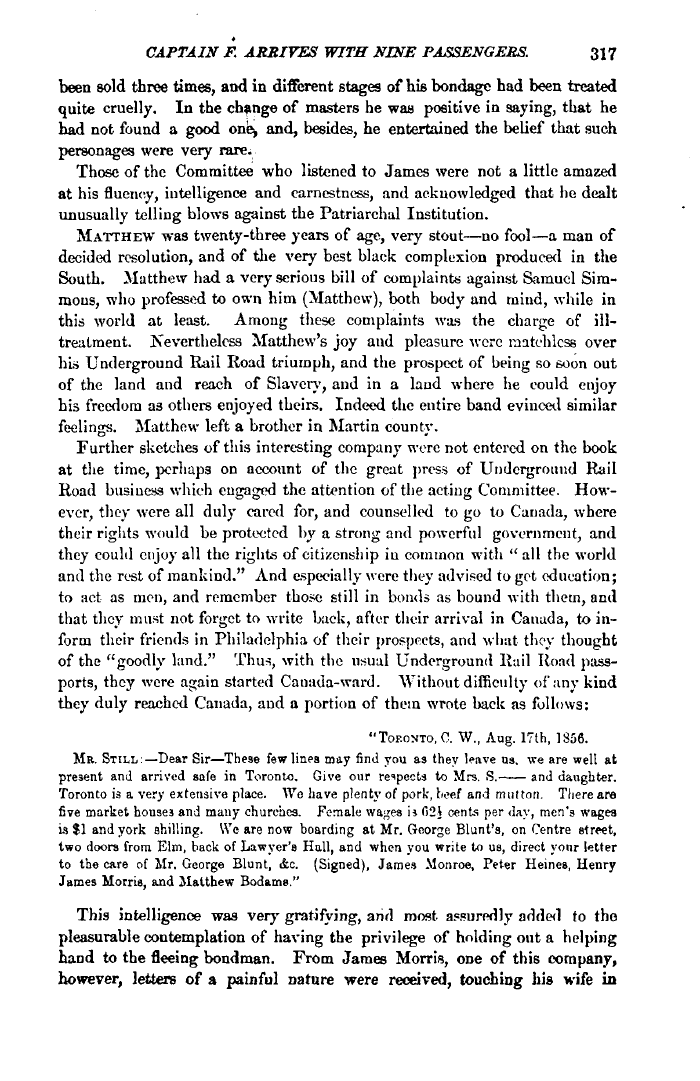 |
||||
 |
||||
| CAPTAIN F. ARRIVES WITH NINE PASSENGERS. 317 been sold three times, and in different stages of his bondage had been treated quite cruelly. In the change of masters he was positive in saying, that he had not found a good one> and, besides, he entertained the belief that such personages were very rare. Those of the Committee who listened to James were not a little amazed at his fluency, intelligence and earnestness, and ackuowledged that lie dealt unusually telling blows against the Patriarchal Institution. MATTHEW -was twenty-three years of age, very stout—no fool—a man of decided resolution, and of the very best black complexion produced in the South. Matthew had a very serious bill of complaints against Samuel Sira-mous, who professed to own him (Matthew), both body and tniud, while in this world at least. Among these complaints was the charge of ill-treatment. ^Nevertheless Matthew's joy and pleasure were matchless over his Underground Rail Road triumph, and the prospect of being so soon out of the land and reach of Slavery, and in a laud where he could enjoy his freedom as others enjoyed theirs. Indeed the entire band evinced similar feelings. Matthew left a brother in Martin county. Further sketches of this interesting company were not entered on the book at the time, perhaps on account of the great press of Underground Rail Road business which engagtxJ the attention of the acting Committee. However, they were all duly cared for, and counselled to go to Canada, where their rights would be protected by a strong and powerful government, and they could enjoy all the rights of citizenship iu common with " all the world and the rest of mankind." And especially were they advised to got education; to act as men, and remember those still in bonds as bound with them, and that they must not forget to write back, after their arrival in Canada, to inform their friends in Philadelphia of their prospects, and what they thought of the "goodly hind." Thus, with the usual Underground Hail Rond passports, they wore again started Canada-ward. Without difficulty of'jiny kind they duly reached Canada, and a portion of them wrote back as follows: "TORONTO, C. W., Aug. 17th, 1856. MR. STILL:—Dear Sir—These few lines may find you as they leave us. we are well at present and arrived safe in Toronto. Give our respects to Mrs. S.—— and daughter. Toronto is a very extensive place. Wo have plenty of pork, beef and mutton. There are five market houses and many churches. Female wages ij 021 cents per day, men's wagea is $1 and york shilling. \Ve are now boarding at Mr. George Blunt's, on Centre street, two doors from Elm, back of Lawyer's Hall, and when you write la us, direct your letter to the care of Mr. George Blunt, &c. (Signed), James Monroe, Peter Heines, Henry James Morria, and Matthew Bodame." This intelligence was very gratifying, and roost assuredly added to the pleasurable contemplation of having the privilege of holding out a helping hand to the fleeing bondman. From James Morris, one of this company, however, letters of a painful nature were received, touching his wife in |